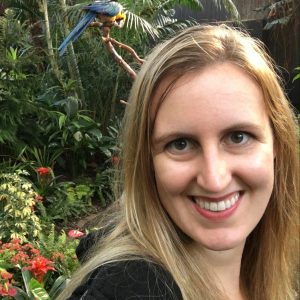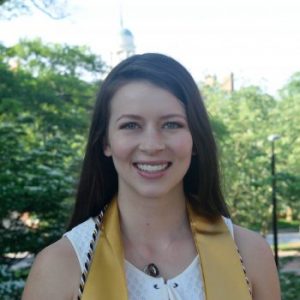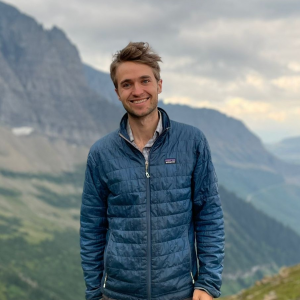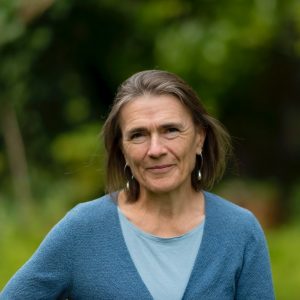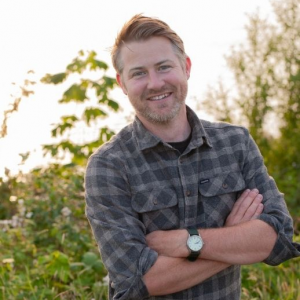November 19, 2021: Dr. Hannah Wittman, a professor at UBC’s faculty of land and food systems and the Institute for Resources, Environment and Sustainability, and Dr. James Vercammen, a professor in UBC’s faculty of land and food systems, discussed panic buying and how flooding will affect B.C.’s food system.
From Fire to Floods, Climate Change Hits Canada’s Fragile Supply Chain
November 19, 2021: UBC geography professor Dr. Simon Donner says B.C. is not equipped to cope with the increasingly extreme weather it faces, as we are adapted to a climate of the past.
From Fire to ‘Atmospheric River’: Why B.C. Is Trapped in a World of Climate Extremes
November 17, 2021: UBC geography professor Dr. Simon Donner discussed the intensity of the recent atmospheric river that hit the Pacific Northwest and the role climate change plays in these kinds of events.
Barking up the Wrong Tree in Old-Growth Controversy?
November 15, 2021: Dr. Hadi Dowlatabadi, a professor at the Institute for Resources, Environment and Sustainability, says half of the carbon stored in a tree is in the soil and roots, and tree-cutting is a major source of carbon release.
Dana Johnson
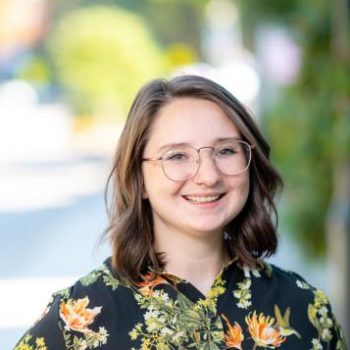
Dana Johnson
PhD Student
PhD Representative, 2022-23
IRES Student Society’s co-president, 2023-24
IRES Student Society Bio
Dana (she/her) served as the IRES Student Society’s co-president with Emily Edwards. As co-presidents, Dana and Emily facilitated the operation of the Student Society through offering administrative support, coordinating monthly meetings, leading the organization of a few key IRES events such as the welcome orientation dinner, and acting as liaisons between the students and faculty and staff by attending faculty meetings and frequently coordinating with the department regarding student needs. In this role, Dana aimed to help maintain and further build the strong sense of community and support that exists among the IRES student community. Dana also loves hanging out with her cat, Nym, playing Dungeons & Dragons, and tending to her many house plants. Please reach out to Dana with any questions or concerns!
Congratulations to the IRES 2021 Fall Graduates!
Congratulations to our November Graduates! We wish you all the best in your future endeavours and can’t wait to see what amazing things you’ll go on to do. If you wish to check out the graduate theses & dissertations, please click here.
Evan Bowness(PhD)Supervisor: Hannah Wittman
|
Meggie Callahan (PhD)Supervisor: Terre Satterfield
|
Claire Ewing (MSc)Supervisors: David Boyd & Amanda Giang
|
Harold Eyster (PhD)Supervisor: Kai Chan
|
Nima Jamshidi (MSc)Supervisor: Hadi Dowlatabadi
|
Isaac Jonas (MA)Supervisor: Rashid Sumaila
|
Eun Hye Lee (MSc)Supervisor: Milind Kandlikar
|
Johnnie Manson (PhD)Supervisor: Terre Satterfield
|
Annie Mejaes (MSc)Supervisor: Rashid Sumaila
|
Sophia Murphy (PhD)Supervisor: Hannah Wittman
|
Sara Nawaz (PhD)Supervisor: Terre Satterfield
|
Sandeep Pai (PhD)Supervisor: Hisham Zerriffi
|
Jonathan Taggart (PhD)Supervisors: Terre Satterfield & Kai Chan
|
|
CONGRATULATIONS!
Dr. Hannah Wittman named as 2021 AASHE Sustainability Award Finalist
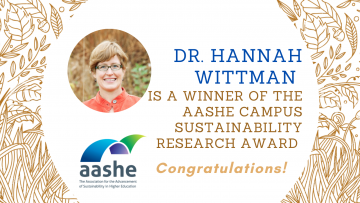
January 2022: The Association for the Advancement of Sustainability in Higher Education (AASHE) announced Dr. Hannah Wittman as a winner of the AASHE Campus Sustainability Research Award.
November 2021: AASHE announced Dr. Hannah Wittman as a finalist for a 2021 AASHE Sustainability Award in the campus sustainability research category, recognizing outstanding scholarship in higher education. Her publication, Can public universities play a role in fostering seed sovereignty? with colleagues Dr. Alexandra Lyon and Dr. Harriet Friedmann, was highlighted.
The AASHE Sustainability Awards provide global recognition to the individuals and organizations leading the higher education sustainability movement. With the help of volunteer judges, this program raises the visibility of high-impact projects, pioneering research, and student leadership that helps to disseminate innovations and inspire continued progress toward environmental, social and economic health.
The outstanding individuals and institutions recognized as finalists were selected based on overall impact, innovation, stakeholder involvement, clarity and other criteria specific to each award category. Winners will be celebrated during a virtual awards ceremony on Thursday, Dec. 9 at noon Eastern.
“The higher education sustainability community continues to show themselves as leaders in the global sustainability movement. This is never more evident than through the many entries received for the AASHE Sustainability Awards,” said Executive Director Meghan Fay Zahniser. “I am proud to recognize the innovation and leadership demonstrated by this year’s finalists.”
To learn more about AASHE’s Sustainability Awards programs, please visit http://www.aashe.org/get-involved/awards/.

